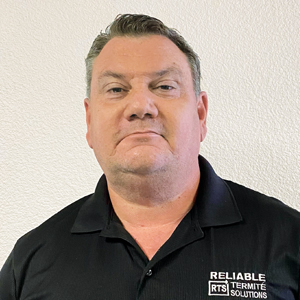
PHOTO: DESIGNER491/ISTOCK / GETTY IMAGES PLUS/GETTY IMAGES
When it comes to talking about healthcare options for business owners, let’s start with a little history. Employers in the U.S. didn’t start offering health benefits in earnest until after World War II. With troops coming home, there were more people than there were jobs, and employers eager to fill positions kept raising salaries. Prices of goods and services soon followed, and the U.S. government feared runaway inflation.
To stave this off, a wage freeze was instituted. But that didn’t sit well with unions, and unrest ran high. In response, a provision was made where employers could offer healthcare plans and receive a 100 percent tax deduction, while the benefits employees received were exempt from federal, state and city taxation. The Baby Boom was on, and with families growing quickly, employer-sponsored healthcare was here to stay.
Since then, things have changed, a lot. Rules, laws, policies, prices and qualifications seem to change year by year (or most notably, when politicians put their noses into it).
QUESTIONS BEGET QUESTIONS
In researching healthcare options for this article, I found myself asking a lot of questions and then, those answers usually spurred more questions. There are so many factors to consider, compare and decide upon. To be honest, I might be just a bit more puzzled now than I was before I started.
Preferred Provider Organizations (PPOs), Exclusive Provider Organizations (EPOs), Health Maintenance Organizations (HMOs), deductibles, shared costs, premiums, exchanges, enrollment periods, taxes — the list goes on. Suffice it to say there is no one-size-fits-all option; prices and plans are all over the map. This can be truly overwhelming when it comes time to buckle down and make that final decision on healthcare.

PHOTO: ADVENTTR/ISTOCK / GETTY IMAGES PLUS/GETTY IMAGES
Besides the challenges that come with just understanding healthcare offerings, company size matters. Many smaller firms actually have a hard time simply getting employees on board. Group plans hinge on a certain quota, and an employee’s spouse may have far better coverage with his or her job. In those cases, certain staff might opt out and suddenly, smaller firms might not even qualify for group rates or programs. I know this to be true because it’s been an ongoing dilemma at my company.
Another issue with group insurance is that it’s not individualized. Employees may be thankful for the benefit, but feel left out or disappointed in what’s covered or in some of the details. The inverse of that is smaller mom-and-pop firms often have higher premiums, yet those can be tailored to their specific needs. Good, but expensive.
So with all this said — and I told you from the start I’m far from an authority — this journey is not
one to take alone. Just as we expect our clients to lean on our understanding of pests and their control, it’s in everyone’s best interest to enlist the aid of someone who is an agent for healthcare offerings, someone who digests the ins and outs on a regular basis.
Maybe that means commissions. Maybe it’s an unwanted, boring and uncomfortable sit-down meeting. Maybe it means annual healthcare plan reviews, or maybe several reviews a year. Things change that much! However, the one thing that consistently came to light as I gritted my teeth and dove into this subject, as you’ll have to do to get the best results, is that no matter the size, there is power in a group.

Tana Herring
Tips from the Pest Cemetery crew
“We are on a health-share plan. One thing I discovered after enrolling is that they are not a write-off for medical expense on personal taxes; nothing you pay out of pocket for preventive services applies toward the deductible.”
— Tana Herring, Co-owner and Office Manager, Summit Pest Solutions, Mills River, N.C.

Mike Red
“I’ve tried to get coverage for my team, but I couldn’t get enough of them to participate.”
— Mike Red, Owner, Reliable Termite Solutions, Turlock, Calif.

Brent Towle
“We went with a health-share plan, because the Affordable Care Act (ACA) made share plans more attractive. They are not insurance, yet they are ACA-compliant, which means no penalties.”
— Brent Towle, Master Technician and Owner, Spectrum Pest Control Eco-Tech LLC, Kenosha, Wis.
SCHAPPERT is owner of The Bug Doctor, Ocala, Fla., and administrator for Facebook industry discussion group Pest Cemetery. He may be reached at bugdoctor@embarqmail.com.
Leave A Comment